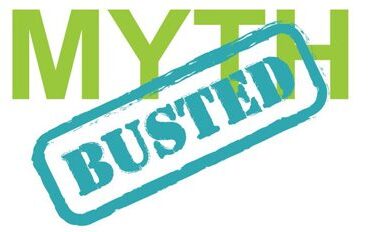
Advocate
Early modern European observers of Ottoman court procedures often marveled at the efficiency of Ottoman courts, especially in matters of criminal law. They claimed that the Ottoman practice of reaching legal decisions in the course of a single session stood in sharp contrast to the practices of European courts. There, similar procedures were prolonged affairs, mainly due to professional lawyers, whose relentless advocating and pleading on behalf of their clients could cause significant delays in court procedures. These European visitors reasoned that since Ottoman court protocols did not allow either litigants themselves or their legal agents to advocate for their causes in open court, verdicts were reached swiftly and in an uncomplicated manner.
The absence of professionally trained advocates in Sharīʿa courts of law was not an exclusive feature of Ottoman legal practice, however. In fact, it was the continuation of a long-standing tradition in Islamic courts throughout the Muslim world. While European legal traditions followed ancient Roman legal practice, in which professional lawyers used rhetoric and other strategies to openly advocate for their clients in courts of law, both medieval and pre-modern Muslim jurists and legal administrators shunned such influences. Hence, in the pre-modern Muslim world, professionally trained advocates never emerged as a special class of intermediaries between judges (qāḍīs) and participants in court proceedings. This in turn allowed for litigants from all social strata to access the legal system directly.
The presence of professional advocates in premodern Islamic courts of law would have been incongruous with the process of adjudication, in which the judge was invested with sole authority in distilling the truthful version of events from statements by the litigants, their legal agents, and witnesses. Therefore, the calculated manipulation of information and one-sided argumentation by expert advocates was considered to be detrimental to this process.
Without professional advocates to advance their causes, litigants addressed the courts personally and delivered their own versions of events in court cases. Documentary evidence from the archives of premodern Islamic courts suggests that litigants used a number of strategies to ensure the desired outcome in legal deliberations. Notably, they appointed skillful legal agents (wakīl) who were able to convincingly present their causes in court proceedings. These premodern legal agents carried some, but not all, of the legal duties that were usually performed by attorneys-at-law in Anglo-American legal traditions. Most importantly, they had the authorization to act on behalf of their principals (sing. muvakkil) and to represent their interests in all legal procedures. They also advised the litigant on how to phrase their case and under which rubric of Sharīʿa discourse to seek justice. Yet in contrast to attorneys-at-law, who were professionally trained lawyers, premodern legal agents of Islamic courts of law were not required to have any formal education in Islamic law nor any experience in the procedures of litigation. Significantly, even when they possessed a great deal of legal knowledge and were able to plead the cases of their principals persuasively, their performances never fully developed into full-scale advocacy. While premodern Muslim jurists unanimously sanctioned the institution of legal agency (wakālah), they often commented that it was susceptible to manipulation and misuse. In Mamlūk courts, for example, professional legal agents who charged fees for their services were monitored by market inspectors (sing. muḥtasib).
The emergence of professionally trained advocates in Sharīʿa-dominated societies was the result of profound changes in judiciary practices, which were triggered by early modern European colonial interventions and the indigenous quest for legal reformations. In countries that came under direct European control (i.e., Algeria, India, Tunisia, and Egypt), colonial powers relegated the competence of Islamic courts to matters of personal law, while all other matters, most notably those subject to commercial and criminal law, fell under the jurisdiction of European legal codes and procedures. The introduction of European-style secular courts provided an impetus for the rise of professional cadres of local advocates, who received their legal education in Western-style (French and British) law schools.
Starting in the late nineteenth century, reformist movements also affected legal systems and court protocols in countries not under direct European influence. Reform-minded governments promulgated new, European-influenced legal codes that further undermined the authority of Sharīʿa law and madrasah-trained jurists.
These trends continued during the formation of modern nation-states, as the majority of national governments gave broad jurisdiction to civil courts that enacted laws passed by national legislative assemblies, while restricting the application of Sharīʿa to some form of personal status law. This reformation-cum-secularization of modern legal systems in the Muslim world was accompanied by the establishment of Western-modeled law schools, which furnished formally trained legal practitioners. The formalization of the legal profession prompted the rise of a class of professional advocates, specializing in different branches of law, who played active roles in civil court proceedings, including unrestrained advocacy on behalf of their clients.
In the second half of the twentieth century, many Muslim-majority nation-states increased the scope of influence of Sharīʿa in their respective legal systems. This in turn stimulated changes in the requirements for advocates who represented clients in Sharīʿa courts. For the most part, they had to acquire (formally or otherwise) some knowledge of Sharīʿa law appropriate to their respective legal context. In most contemporary Muslim-majority states, modern-day advocates study abridged and codified versions of officially sanctioned Sharīʿa laws, which is a far cry from the long-term immersion into multiple authoritative fiqh texts in the premodern Islamic Colleges of Law (madrasahs).
The range of activities performed by professional advocates in contemporary Sharīʿa courts varies greatly across the geography of the Muslim world. For the most part, legal advocacy is conditioned by local cultural practices and by the legal parameters that determine its scope in each Muslim-majority state. Of the three countries that recognize Sharīʿa as the official law of the land — Saudi Arabia, Sudan, and Iran — Saudi Arabia has stood alone in opposing the presence of professionally trained advocates in Sharīʿa courts. This was justified by claims that advocates would unnecessarily complicate and delay litigations and further drive a wedge between the litigants. In spite of these restrictions, however, professional advocates have recently emerged in Saudi Arabia, and they represent clients in some civil cases.
Advocate
701 – 023
Last Updated: 11/2021
Copyright © 2017-2021 Institute for the Study of Islam (ISI) | Institute-for-the-study-of-Islam-org | Discerning Islam | Discerning-Islam.org | Commentaries on Islam | © 2020 Tips Of The Iceberg | © 1978 marketplace-values.org | Values In The Marketplace | are considered “Trade Marks and Trade Names” ®️ by the Colorado Secretary of State and the Oklahoma Secretary of State. All Rights Reserved.



